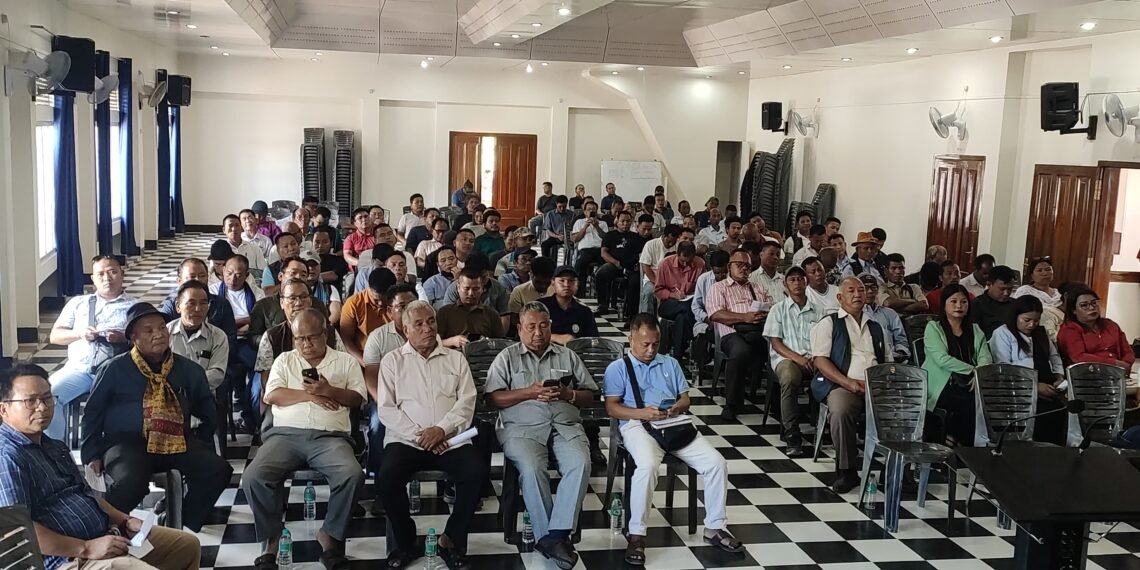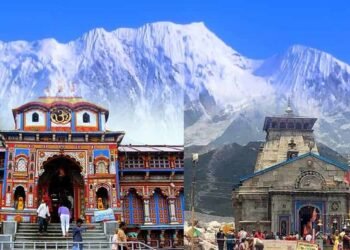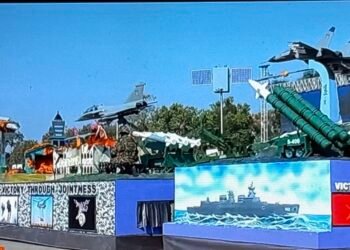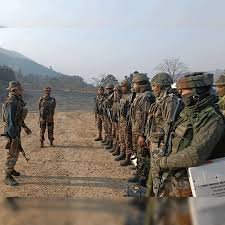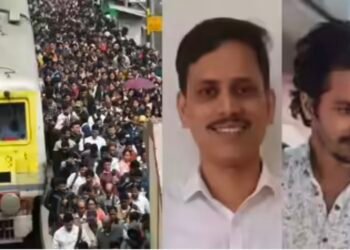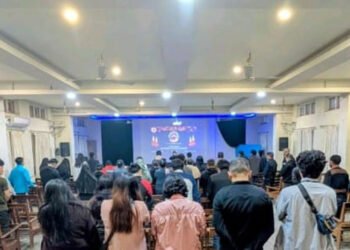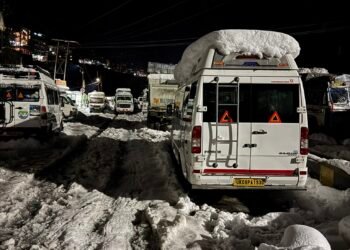BY PC Bureau
July 30 , 2025— The Kuki-Zo Council (KZC) held a major public meeting in Kangpokpi on Tuesday to discuss two critical issues: the Ministry of Home Affairs’ (MHA) proposal to facilitate safer movement along National Highway-2 through the hill districts, and the broader question of cessation of hostilities amid ongoing ethnic tensions.
Sources said the meeting—attended by tribal leaders, civil society representatives, and community opinion-makers—reached broad consensus on both issues. Delegates authorized the KZC to take a final call in consultation with the MHA in the coming days after holding a series of similar consultations across the hill districts.
A key point of agreement was that the Kuki-Zo community had never officially blocked national highways. Rather, the ethnic violence that erupted on May 3, 2023, created a volatile situation that restricted free movement.
After a marathon three-hour discussion, the meeting clarified that the KZC does not oppose the passage of commercial and public transport, including buses, through Kangpokpi, as long as they are escorted by central security forces.
“This arrangement has been in place for months. However, the situation still does not allow safe movement of private vehicles,” a participant noted. “We are ready to acknowledge this publicly if it helps ease tensions.”
READ: Opinion: Reclaiming Kuki-Zo Narrative: From Fragmentation to Unity
However, some speakers expressed deep dissatisfaction over the government’s failure to act against the ongoing blockade reportedly enforced by the Foothill Naga Coordination Committee against the Kuki-Zo people. The blockade has remained in place for over ten days. Speakers called on the Governor of Manipur to intervene and ensure its removal.
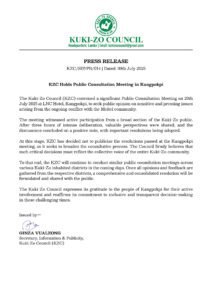
“It is not the sole responsibility of the Kuki-Zo people to maintain peace. Others must also take accountability,” one speaker emphasized.
On the matter of ceasefire, attendees reiterated that the Kuki-Zo community has never been the aggressor. “We are not against a ceasefire. In fact, we have practiced restraint throughout. We are willing to give a formal undertaking that we will not initiate violence—because we never have. We have only taken up arms in self-defense,” a delegate said.
The meeting also addressed the larger community demand for a permanent political solution to the ethnic crisis. Many attendees emphasized that the MHA must take up their long-standing demand for Union Territory status at the earliest. Speakers also cautioned the KZC leadership not to limit discussions to temporary measures, but to push for substantive political recognition.
“We cannot remain in limbo any longer, denied access to even basic facilities,” one speaker said. “Measures like easing highway travel or ceasefires won’t change the ground reality. The only viable solution is the creation of a Union Territory for the Kuki-Zo people. The wounds of May 3, 2023, will not heal. Let’s accept the truth—we cannot live together with the Meiteis anymore.”
READ: Trump Repeats Ceasefire Claim, Contradicts Modi
As part of its action plan, the KZC announced that similar public consultations would be held across other Kuki-Zo dominated regions in the days ahead. These regional gatherings will help build consensus and are expected to culminate in the adoption of common resolutions.
In a press release the KZC has said that at this stage, KZC has decided not to publicize the resolutions passed at the Kangpokpi meeting, as it seeks to broaden the consultative process.
“The Council firmly believes that such critical decisions must reflect the collective voice of the entire Kuki-Zo community,” the release said, adding,” To that end, the KZC will continue to conduct similar public consultation meetings across various Kuki-Zo inhabited districts in the coming days. Once all opinions and feedback are gathered from the respective districts, a comprehensive and consolidated resolution will be formulated and shared with the public.”
After these consultations, the KZC leadership is expected to meet with Union Home Ministry officials to convey the outcomes before issuing a public statement.
The well-attended event drew participation from a broad cross-section of Kuki-Zo leadership and civil society. Attendees included representatives from the Kuki Inpi Manipur (KIM), Sadar Hills Chiefs’ Association (SAHILCA), Kuki Inpi Sadar Hills (KISH), area-based Inpis, Committee on Tribal Unity (CoTU), Kuki Women Union (KWU), Kuki Students’ Organisation (KSO) headquarters and Sadar Hills units, Thadou Inpi, as well as youth organizations, village authorities, church leaders, intellectuals, and politicians.
The meeting was coordinated by KZC Assistant Secretary Douminlal Haokip. It featured addresses by Saikul MLA Kimneo Hangshing—one of the ten Kuki-Zo legislators—as well as representatives from the United People’s Front (UPF) and Kuki National Organisation (KNO). KZC Chairman Henlianthang Thanglet delivered the keynote address following an opening prayer by Rev. Mangkholien Kipgen. KZC Vice Chairman Janglet Haokip delivered the welcome speech.
In her remarks, MLA Hangshing commended the KZC for its leadership and stressed the importance of unity among tribal communities. Other speakers echoed this sentiment, calling for coordinated leadership amid the continuing crisis.



